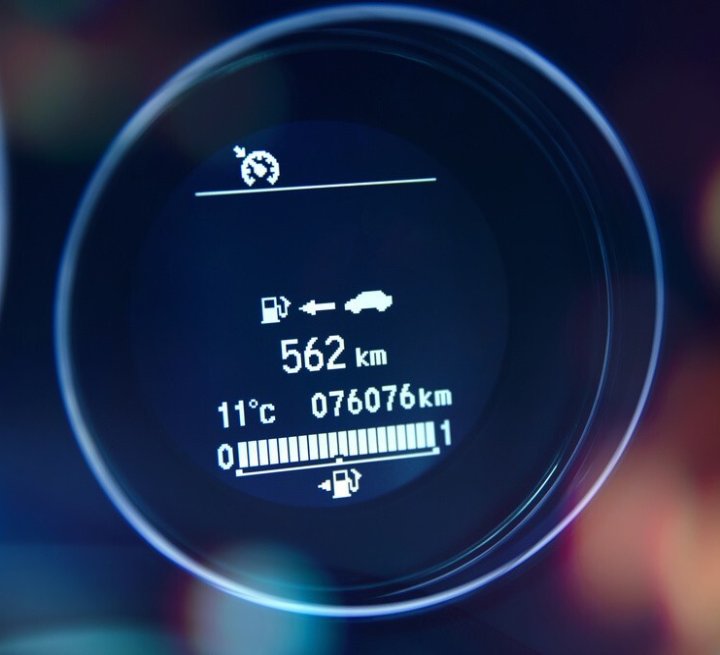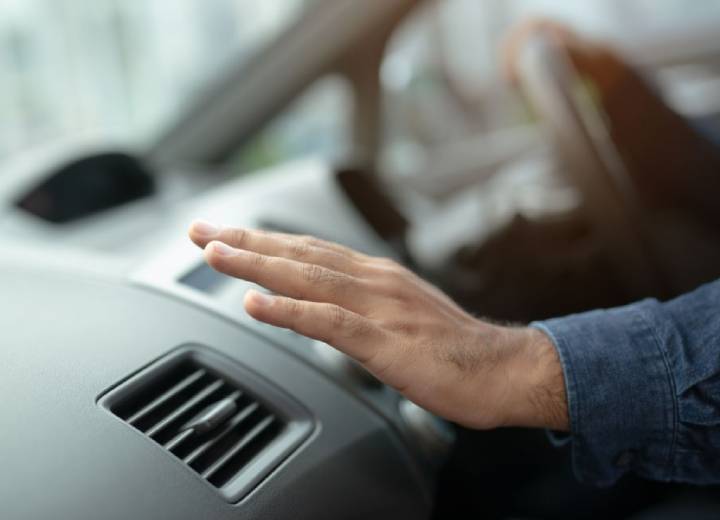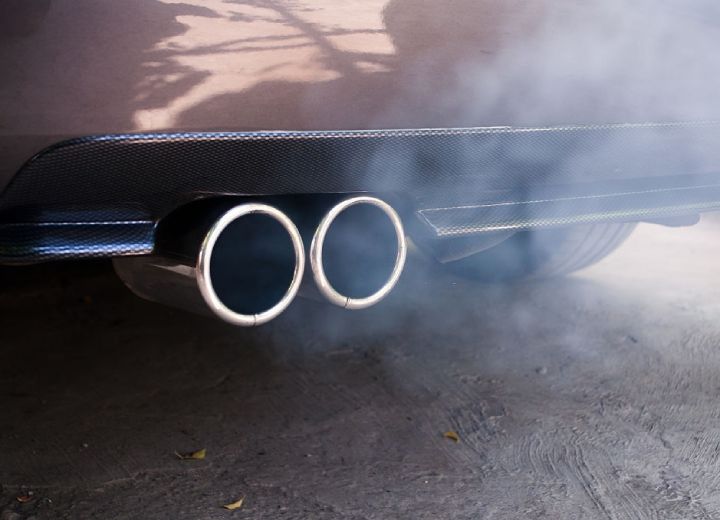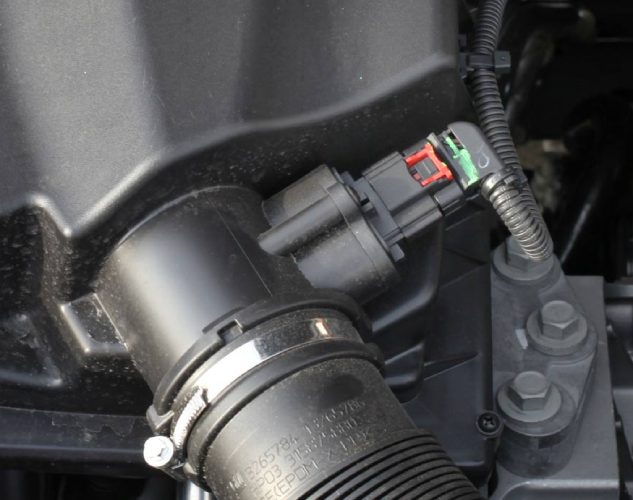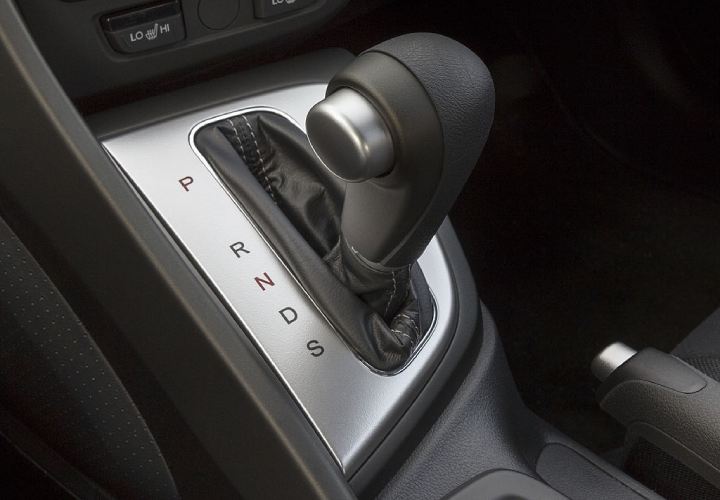An oil pressure gauge going up and down while driving your car can indicate a low oil level, a fault with the oil pressure sending unit, a failing oil pump. A blown head gasket and worn oil pickup O-ring can cause your oil pressure reading to fluctuate as well.
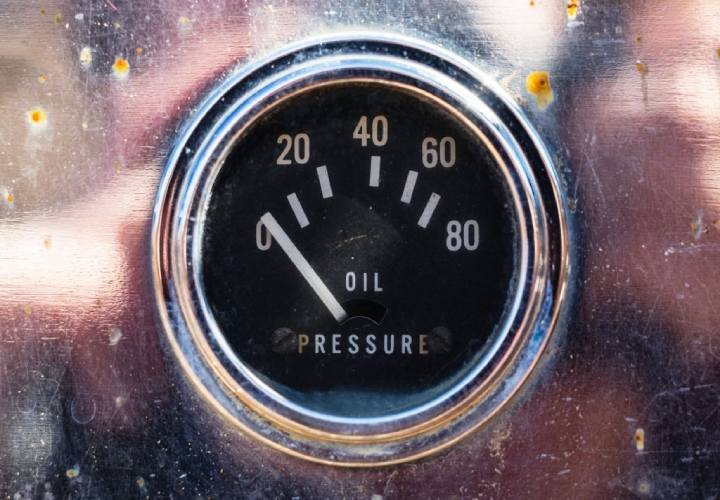
Is it normal for oil pressure to go up and down?
Yes, it is totally normal for a vehicle’s oil pressure reading to fluctuate along with engine rpm. The oil pump is hooked up to the engine and propels faster as the engine revs up. This translates to higher oil pressure at higher engine RPMs.
The oil pressure gauge might also be low at cold starts and make its way up as the motor warms up. Regardless of the fluctuation’s cause, the oil pressure should always remain above 5-10 PSI and below 80-100 PSI.
But fluctuation in the oil pressure at a constant engine RPM or knocking/change in engine’s sound along with low/high oil pressure is a serious indicator of something wrong in the oil delivery system.
To fix such oil pressure fluctuations, low or high-pressure indications on the dashboard, we have listed possible causes below, starting from the most inexpensive and easiest repairs up to the hardest ones.
What can cause my oil pressure gauge to move while driving?
Low Oil Level
Your first check should be the engine oil level. A low engine oil level can cause the pump to not work at its fullest potential, resulting in low oil pressure while driving.
Check the engine oil level with the help of the dipstick after the car has been standing still for a while. Refer to the vehicle’s owner’s manual for detailed instructions on checking the oil level on your particular vehicle.
Faulty Oil Pressure Sending Unit
The oil pressure sending unit is a sensor responsible for reporting the engine’s oil pressure to the dashboard.
These Oil pressure sending units mostly leak out, and oil manages its way to seep in the side of the electrical connection on the sensor. This results in rapid fluctuations in oil pressure reading in the dash regardless of the change in engine RPM.
One can quickly diagnose this issue by observing oil seepage into the sensor’s side of the electrical connection.
Or with a bit of assistance from a mechanic, by mounting a universal oil pressure monitoring sensor on the engine instead of the oil pressure sending unit and observing the oil pressure. If steady oil pressure is reported from the universal sensor, then replace your oil pressure sending unit.
It usually cost 15-40 USD for the sensor and is a quick and easy fix. This is the culprit most of the time, and you do not want to directly point towards a faulty oil pump until you are very sure about it.
Incorrect Engine Oil Filter
If you notice a very low startup engine oil pressure that stabilizes after a while, then an incorrect oil filter could be the culprit. Some engines are equipped with oil filters having an anti-drain back valve.
It prevents any oil from draining as soon as the engine is cut. Installing an incorrect oil filter can cause oil to drain to the sump when the engine is off. Starting the motor then up will cause the oil pressure to remain low for a little while.
Check the oil filter if you are facing similar symptoms.
Worn Out Oil pickup O-ring or Clogged Pickup Screen
A worn-out oil pickup O-Ring or a clogged pickup screen can cause the pump to overwork and reduce the engine oil pressure.
Driving your car with very low oil pressures can cause significant, unrepairable damages to the motor.
Hence tow your vehicle to the nearest trusty mechanic if you are reading a very low engine oil pressure and the above checks are done.
Failing Oil Pump
Constantly low oil pressure, along with knocking or squeaking noises from the engine bay, are symptoms of a failing oil pump. Inadequate pressure from a failing pump translates to poor lubrication of the moving parts in the engine.
If the car is driven on a failing pump for a while, it can significantly damage many critical components in the engine.
An oil pump replacement is a hectic job and is heavy on the pocket. Hence try to make sure it’s a failing pump before opening up the engine by diagnosing all other possibilities.
Blown Head gasket
If you are facing oil pressure issues shortly after you had an engine heat up, then there are chances that your engine’s head gasket is blown.
A blown head gasket will allow the oil and coolant to no longer remain isolated from each other and mix together. Coolant mixed with the engine oil will cause your engine oil to become foamy and the oil pressure to drop.
It will be indicated with a low-pressure reading, foamy engine oil, smoke from the exhaust, and a significant decrease in coolant level.
A blown head gasket should be fixed as soon as possible to avoid damaging other engine components due to lack of lubrication, heating, and proper combustion.
How To Read an Oil Gauge?
Analog oil gauge is available on only some vehicles nowadays, especially on the older models in the dash. The reading is usually in PSI or Bar, depending on the car’s make, model, and origin.
On newer vehicles, oil pressure readings can be read by attaching an OBD2 scanner under the dashboard.
What should my oil gauge read while driving?
The oil gauge should always read between 10-80 PSI, whether it’s idle or moving. An increase in the oil pressure with an increase in engine RPM is nothing problematic unless it remains within the optimum oil pressure range stated above.
What should my oil gauge read at idle?
Your oil gauge should read around 20-30 PSI on a cold start, but if it falls below 10 PSI after even a cold start, you should get the car vehicle diagnosed by a reputable mechanic or narrow down the probable causes from the list above.
Final thoughts
There can be multiple reasons as to why your oil pressure gauge, hence you should have your car diagnosed as soon as possible. Any delays and you could be facing a hefty bill! I hope this article gave you a better overview of what might cause your oil pressure readings to fluctuate!
Every since I was a little boy, I can remember spending the afternoons in my dad’s repair shop. I got my first car at 16 and it was the best feeling ever!
I have contributed to various automotive publications but decided it’s finally time to settle for something constant.

